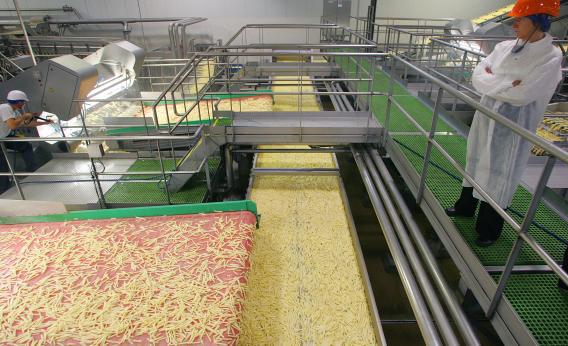The food industry and the Congress members it lobbies have apparently reached an agreement on childhood obesity: It’s less important than profits. Proposed school lunch guidelines would limit the number of potatoes and other starchy vegetables (already dinged by a bipartisan agreement spearheaded by potato-producing state Sens. Mark Udall of Colorado and Susan Collins of Maine). They would limit the amount of salt in foods, insist that pizza, even with tomato paste, is not a vegetable and add more fresh peaches, apples, spinach and broccoli—foods sadly lacking in powerful lobbies like the National Potato Council. (No, I wouldn’t have guessed that potatoes were powerful lobbyists, either.)
Last year’s Healthy Hunger-Free Kids’ Act required changes to the school lunch program to make it healthier (and to lessen the overall federal subsidy). What it didn’t do was define exactly what changes would achieve the goal of better nutrition. The Department of Agriculture created a proposal that fit within its budget and pleased nutritionists, public health experts and many school lunch officials, but it didn’t please the American Frozen Food Institute or the companies that provide much of the food served to kids at lunch—companies like Coca-Cola, Del Monte, and the makers of frozen pizza. According to the NYT, those companies have spent $5.6 million in successfully lobbying their congress members to object to the guidelines. Their request to the USDA Go back to the drawing board, and don’t come back until you have a proposal that accomodates the health of our most important constituents: the ones with deep pockets.
